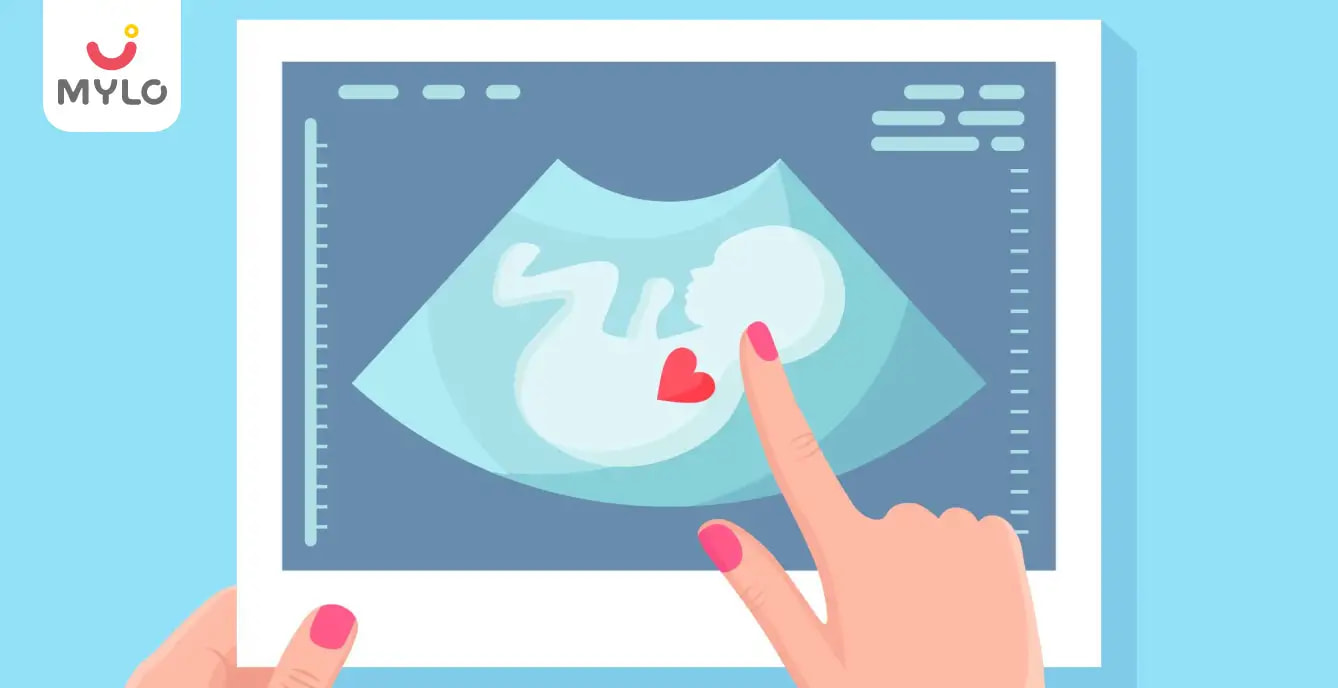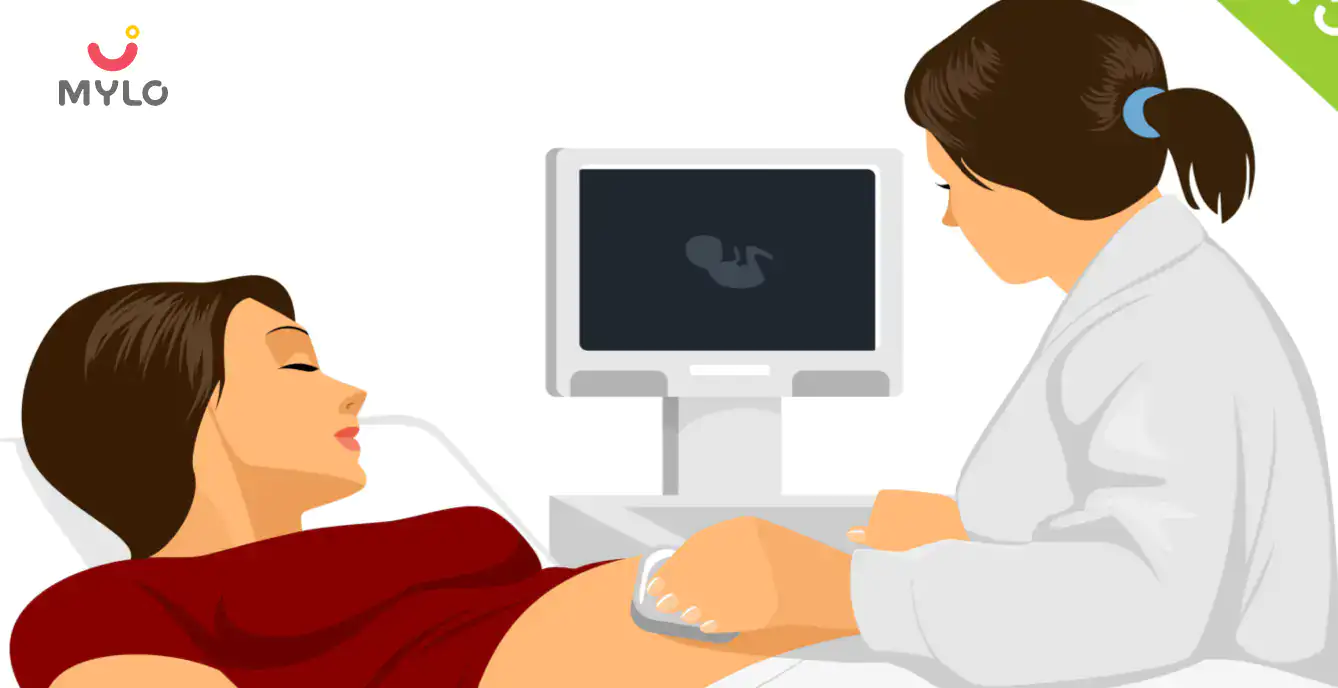Home

Scans & Tests

Congenital Heart Disease: Symptoms, Causes & Treatment
In this Article

Scans & Tests
Congenital Heart Disease: Symptoms, Causes & Treatment
Updated on 25 April 2023
Congenital heart disease is a broad term for a range of birth defects affecting the way a heart usually works. The word “congenital” denotes that the condition is present from birth. Around 9 in every 1000 children in India are born with congenital heart defects, making it the most common birth defect in our country.
In this article, we will understand congenital heart disease meaning, its types, symptoms, causes, treatment and prevention.
What is congenital heart disease?
Let us first understand the definition of congenital heart disease. Congenital heart disease refers to one or more of the problems with the heart’s structure present since birth. Congenital heart defects can affect and even change the way blood flows from the heart. Although treatable, congenital heart disease claims thousands of lives across the country every year.
Types of congenital heart disease
There are various types of congenital heart defects and they can sometimes even occur in combination. Some of the most common congenital heart defects include:
1. Septal defects
Septal defects refer to when there’s a hole between the two of the heart’s chambers. It is commonly known as a hole in the heart.
2. Coarctation of the aorta
Coarctation of the aorta means the main large artery of the body known as the aorta is narrower than it should be.
3. Pulmonary valve stenosis
The pulmonary valve helps control the flow of blood from the lower right chamber of the heart to the lungs. In pulmonary valve stenosis, the pulmonary valve is narrower than it should be.
4. Transposition of the great arteries
In the transposition of the great arteries, the two of the body’s main arteries, namely pulmonary and aortic valves and their arteries, are connected to have swapped positions.
5. Underdeveloped heart
An underdeveloped heart means a part of the heart hasn’t developed properly, making it tough to pump enough blood to the body or lungs.
Symptoms of congenital heart disease
There can be multiple signs and symptoms of congenital heart disease, especially in babies. Congenital heart disease symptoms include:
-
Rapid heartbeat
-
Rapid breathing
-
Swelling around the eyes and in legs and tummy
-
Extreme fatigue and tiredness
-
A bluish tinge of the skin or lips
-
Tiredness and rapid breathing when the baby is feeding
These problems can be identified soon after birth but sometimes mild defects may not be noticeable and not cause any problems until later in life.
Causes of congenital heart disease
Most of the time, the distinct cause of congenital heart disease cannot be identified. However, there are some factors that can increase the risk of congenital heart defects such as:
-
Down’s syndrome- a genetic disorder that causes problems in baby’s normal physical development and learning
-
The mother catching certain infections during pregnancy like rubella
-
The mother consuming certain medicines during pregnancy, including statins and acne medicines
-
The mother having type 1 diabetes or type 2 diabetes, especially if poorly controlled
-
Other chromosomal defects that alter genes from normal and can be inherited
Many congenital heart defects can be diagnosed before a baby is born using an ultrasound scan during pregnancy. However, it’s not possible to detect all congenital heart defects in this manner.
How to diagnose congenital heart disease?
Congenital heart disease can be diagnosed either during pregnancy or after birth. If a congenital heart disease is suspected during a routine ultrasound, the doctor may recommend a fetal echocardiography to confirm the diagnosis. Fetal echocardiography is carried out around 18-22 weeks of the pregnancy. But it’s not possible to detect all congenital heart defects with an echocardiography, especially the minor ones.
It’s also possible for the doctor to diagnose a baby with congenital heart disease soon after birth if they present any congenital heart disease symptoms. The baby’s heart will be examined and if the doctor suspects any congenital heart defects, they will do further testing to confirm the diagnosis. However, sometimes congenital heart defects don’t present any noticeable symptoms for months or even years.
An echocardiography, electrocardiogram, chest X-ray, pulse oximetry and cardiac catheterization are some of the further tests that can help confirm a congenital heart disease.
Treatment for congenital heart disease
The treatment for congenital heart disease depends on the type of defect a child or person has. Mild congenital heart defects such as a hole in the heart don’t often need treatment as they can improve on their own. Interventional procedures or surgeries are only required if the defect is significant and causing problems. Modern surgical techniques can help restore most of the heart’s normal function.
Most of the time, people with congenital heart disease need treatment throughout their life and are reviewed during childhood and adulthood. That’s because people with complex heart defects can sometimes develop further problems with their heart valves or rhythm. Surgeries or interventional procedures often affect the person’s ability to exercise and their immune function.
Complications related to congenital heart disease
Children or adults with congenital heart disease are at an increased risk of certain complications such as:
1. Developmental problems
Children with congenital heart defects may experience developmental delays, lifelong problems with physical coordination and learning difficulties. This can be because of poor oxygen supply to the brain and may lead to problems in social interaction and behaviour.
2. Respiratory tract infections
People with congenital heart disease have a higher risk of developing respiratory tract infections (RTIs). RTIs are infections of the airways and lungs such as pneumonia. Most of these infections are caused by viruses and bacteria.
3. Endocarditis
The risk of developing endocarditis is also higher in people with congenital heart disease. Endocarditis is an infection of the lining of the heart, valves or both. Endocarditis can be treated but if left untreated may lead to life-threatening heart damage.
4. Pulmonary hypertension
Some congenital heart defects can cause the blood pressure inside the arteries connecting the heart and lungs to be much higher than normal. This is known as pulmonary hypertension.
5. Heart rhythm problems
Children and adults with congenital heart defects may also develop problems with their heart rhythm. Their heart may beat too slowly or too rapidly.
6. Blood clots
People with a history of congenital heart disease also have a higher chance of a blood clot forming inside their heart and travelling to the lung or brain. This can even lead to pulmonary embolism or a stroke. Medications can help prevent, dissolve or remove blood clots.
7. Heart failure
When the heart is unable to pump enough blood to meet the body’s needs, it is known as heart failure. It can occur shortly after birth if a baby is born with severe congenital heart disease or later due to a complication or an untreated congenital heart defect.
8. Sudden cardiac death
People with a history of congenital heart disease have a small risk of sudden cardiac death but it is highly uncommon.
How to prevent congenital heart disease?
Since there is so little information about the causes of congenital heart disease, there’s little knowledge on preventing congenital heart defects. However, if you’re pregnant, you can follow the below advice to reduce the risk:
-
Ensure you’re vaccinated against flu and rubella
-
Avoid taking medications or drinking alcohol
-
Always consult your doctor before taking any medicine or herbal remedies during pregnancy
-
Take your folic acid supplements throughout the pregnancy to lower the risk of birth defects in baby
-
Avoid contact with infected people
-
If you have diabetes, keep it under control
-
Avoid any exposure to organic solvents like those used in dry cleaning, paint and nail paint removers.
Most congenital heart defects can be treated and managed. It’s important for people with congenital heart disease or their parents to consult a specialist and discuss these issues with them.



Written by
Anupama Chadha
Anupama Chadha, born and raised in Delhi is a content writer who has written extensively for industries such as HR, Healthcare, Finance, Retail and Tech.
Read MoreGet baby's diet chart, and growth tips

Related Articles
Related Questions
Influenza and boostrix injection kisiko laga hai kya 8 month pregnancy me and q lagta hai ye plz reply me

Hai.... My last period was in feb 24. I tested in 40 th day morning 3:30 .. That is faint line .. I conculed mylo thz app also.... And I asked tha dr wait for 3 to 5 days ... Im also waiting ... Then I test today 4:15 test is sooooo faint ... And I feel in ma body no pregnancy symptoms. What can I do .

Baby kicks KB Marta hai Plz tell mi

PCOD kya hota hai

How to detect pcos

RECENTLY PUBLISHED ARTICLES
our most recent articles

Scans & Tests
Fetal Echo Test in Pregnancy: A Diagnostic Tool for Detecting Heart Defects in the Womb

Symptoms & Illnesses
Bedwetting (Nocturnal Enuresis): Causes, Symptoms & Treatment

Skin Changes
Birthmark: Types, Causes, Risks & Treatment

Emotions & Behaviour
Behaviour Therapy: Benefits, Types & Techniques

Feeding Schedule
How Long Does Breast Milk Last at Room Temperature?
Home Remedies
Thrush: Causes, Symptoms, Treatment, and More
- Childhood Asthma: Symptoms, Causes & Treatment
- Reflux in Baby: Symptoms, Causes & Treatment
- Pre Eclampsia: Meaning, Causes & Symptoms
- Baby Diarrhea: Causes, Symptoms & Treatment
- Bronchiolitis: Causes, Symptoms & Treatment
- Pelvic Pain in Pregnancy: Symptoms & Treatment
- Saliva During Pregnancy: Causes & Prevention
- Effective Ways to Treat Jaundice in Children: Expert Tips for a Speedy Recovery
- 10 Best Original Movies to Watch on Netflix
- Flu, Change of Season or New Covid Variant, XBB.1.16- What’s Causing These Symptoms?
- 5 Ways In Which Music Can Boost Your Baby's Brain Development
- How to Stop Baby Hiccups: Everything You Need to Know
- “Staying Active and Healthy: The Benefits of Safe Exercise During Pregnancy”
- Appendicitis In Pregnancy Symptoms, Diagnosis & Surgery


AWARDS AND RECOGNITION

Mylo wins Forbes D2C Disruptor award

Mylo wins The Economic Times Promising Brands 2022
AS SEEN IN

- Mylo Care: Effective and science-backed personal care and wellness solutions for a joyful you.
- Mylo Baby: Science-backed, gentle and effective personal care & hygiene range for your little one.
- Mylo Community: Trusted and empathetic community of 10mn+ parents and experts.
Product Categories
baby carrier | baby soap | baby wipes | stretch marks cream | baby cream | baby shampoo | baby massage oil | baby hair oil | stretch marks oil | baby body wash | baby powder | baby lotion | diaper rash cream | newborn diapers | teether | baby kajal | baby diapers | cloth diapers | laundry detergent 6472 | lactomama lactation granules |




